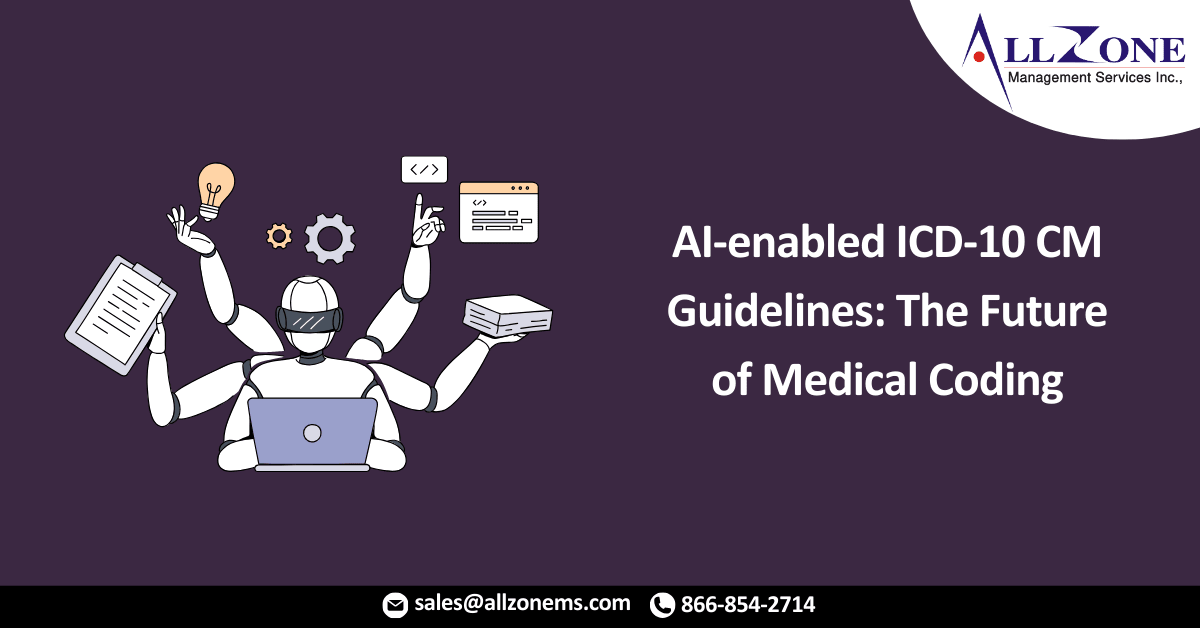In the ever-changing realm of healthcare coding, it is imperative for professionals to stay updated on the latest developments within the International Classification of Diseases, 10th Revision, Clinical Modification (ICD-10-CM). This dynamic coding system plays a pivotal role in recording diagnoses, conditions, and other vital health-related information.
With the advent of artificial intelligence (AI) technologies in the healthcare sector, significant transformations are underway in the landscape of ICD-10-CM coding. AI’s influence spans across various dimensions of healthcare, from diagnostics to tailored treatment strategies. Specifically in the domain of coding, AI holds tremendous potential to reshape how coding experts interpret clinical documentation and assign codes.
A subset of AI known as machine learning has the capability to analyze extensive datasets, identifying patterns and aiding in coding decisions. This automated process leads to heightened accuracy, diminished manual efforts, and the ability to manage copious volumes of data. Nevertheless, these opportunities are not exempt from challenges.
Despite their advanced capacities, AI tools can occasionally misinterpret ambiguous documentation or lack the nuanced understanding required for intricate decision-making. Coders must continue to exercise their expertise and judgment when reviewing AI-assisted code assignments. This vigilance remains essential to ensure that AI-supported coding adheres to rigorous standards of quality and compliance.
Furthermore, the role of coding professionals is evolving during this era of AI integration. While AI tools serve as valuable collaborators, coders retain their status as experts. Their invaluable familiarity with coding guidelines, medical terminology, and clinical protocols remains irreplaceable. Coders should be prepared to harness AI technologies while upholding the quality and compliance of coding practices.
Ongoing training and education are indispensable within this ever-evolving landscape. As ICD-10-CM guidelines undergo modifications and AI technologies progress, coders must remain well-informed. Keeping abreast of these developments empowers them to harness the advantages of AI while mitigating potential risks. Continuous learning enables coding experts to refine their skills and stay current with the latest AI innovations and ICD-10-CM revisions.
The potential of AI to enhance coding education and training is a facet not to be underestimated. AI-driven tools have the potential to offer adaptive learning experiences tailored to the unique requirements of coders. These tools can create coding simulations that present intricate scenarios, assess coders’ capabilities, and deliver real-time feedback. Coders should proactively explore AI-powered training opportunities to enhance their coding proficiency.
As AI technologies become more deeply entrenched in the coding process, ethical considerations take on paramount importance. AI algorithms might inadvertently perpetuate biases present in the training data, potentially affecting the accuracy and impartiality of coding assignments. Coders should actively engage in dialogues concerning the ethical implications of AI in coding. They should advocate for transparent AI development processes and policies that prioritize accuracy, fairness, and human oversight.
The collaboration between coding professionals and AI developers is pivotal to fully unleash the potential of AI technologies in the coding realm. Coders’ profound understanding of coding guidelines, clinical protocols, and healthcare documentation nuances holds immense value. By sharing their insights with AI developers, coders can shape the evolution of AI tools that tackle the distinctive challenges of the coding profession. Coders should actively collaborate with AI developers and contribute feedback on AI-fueled coding tools.
In conclusion, while AI has the capacity to revolutionize ICD-10-CM coding, it cannot replace human expertise. By staying current with evolving guidelines, participating in AI-based training, addressing ethical considerations, and collaborating with AI developers, coding professionals can effectively harness the capabilities of AI. In this era of AI, the expertise and judgment of coders remain indispensable, ensuring the highest standards of coding quality and compliance.

